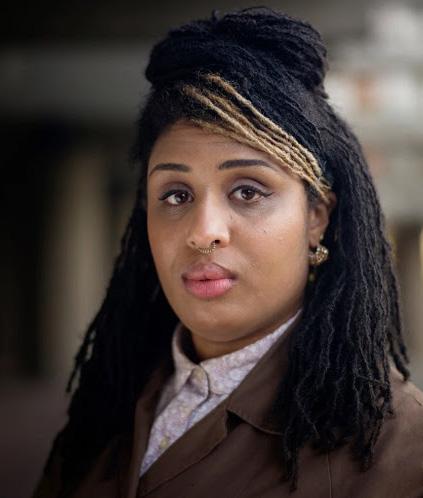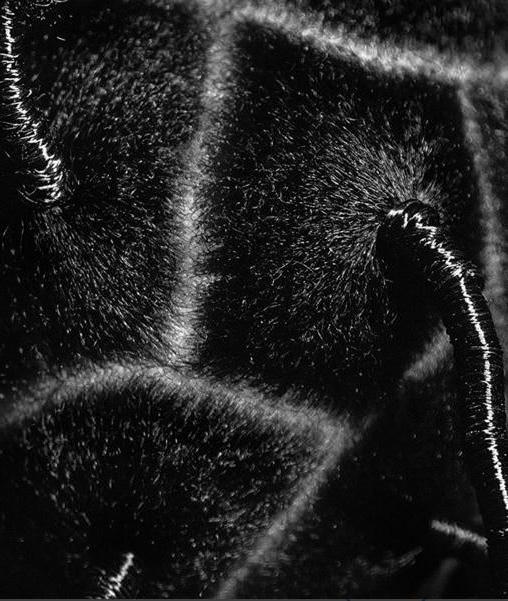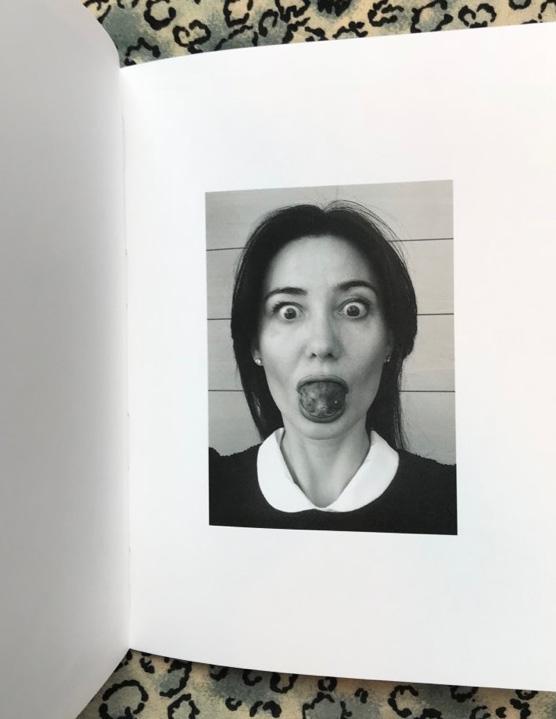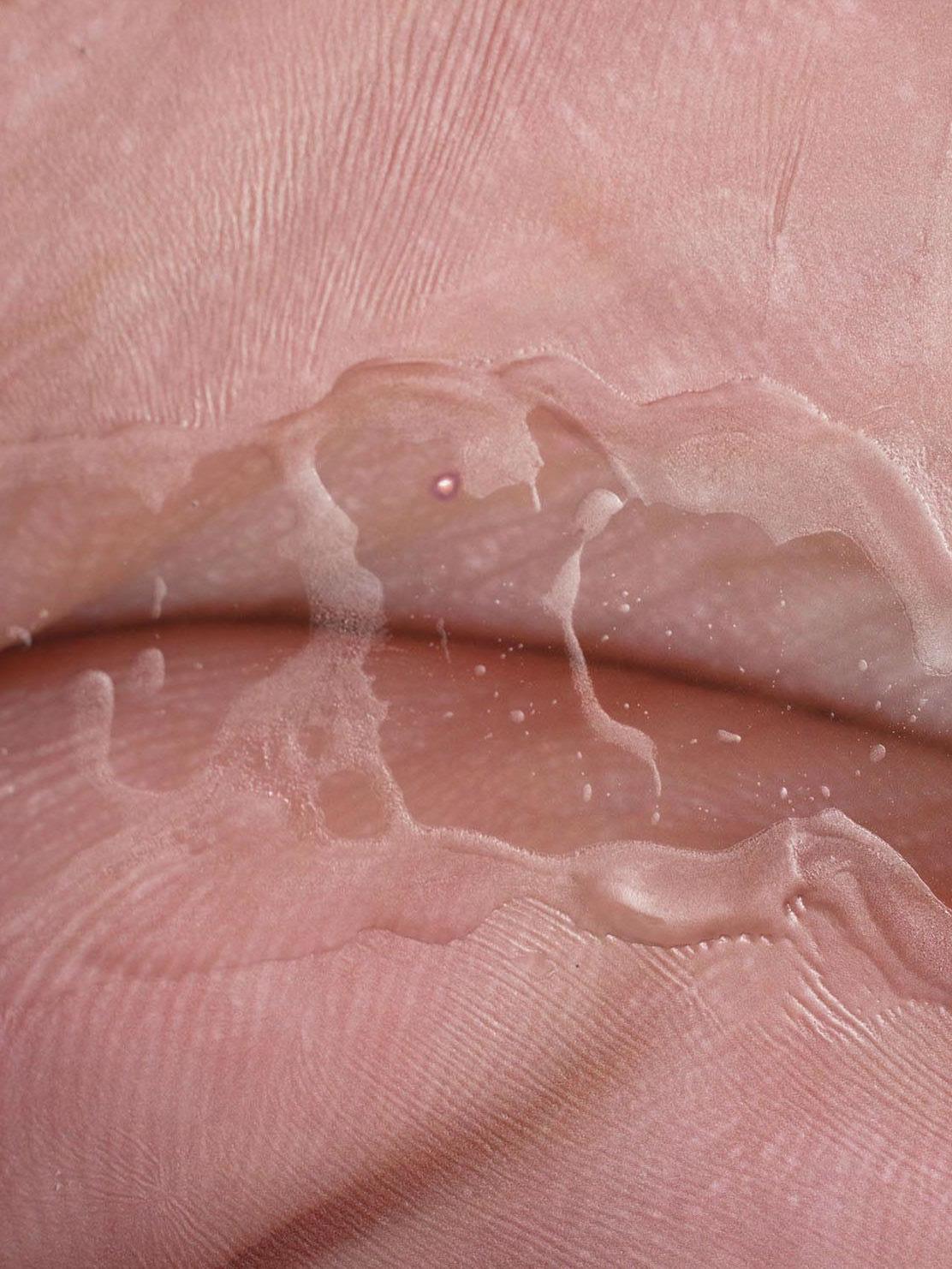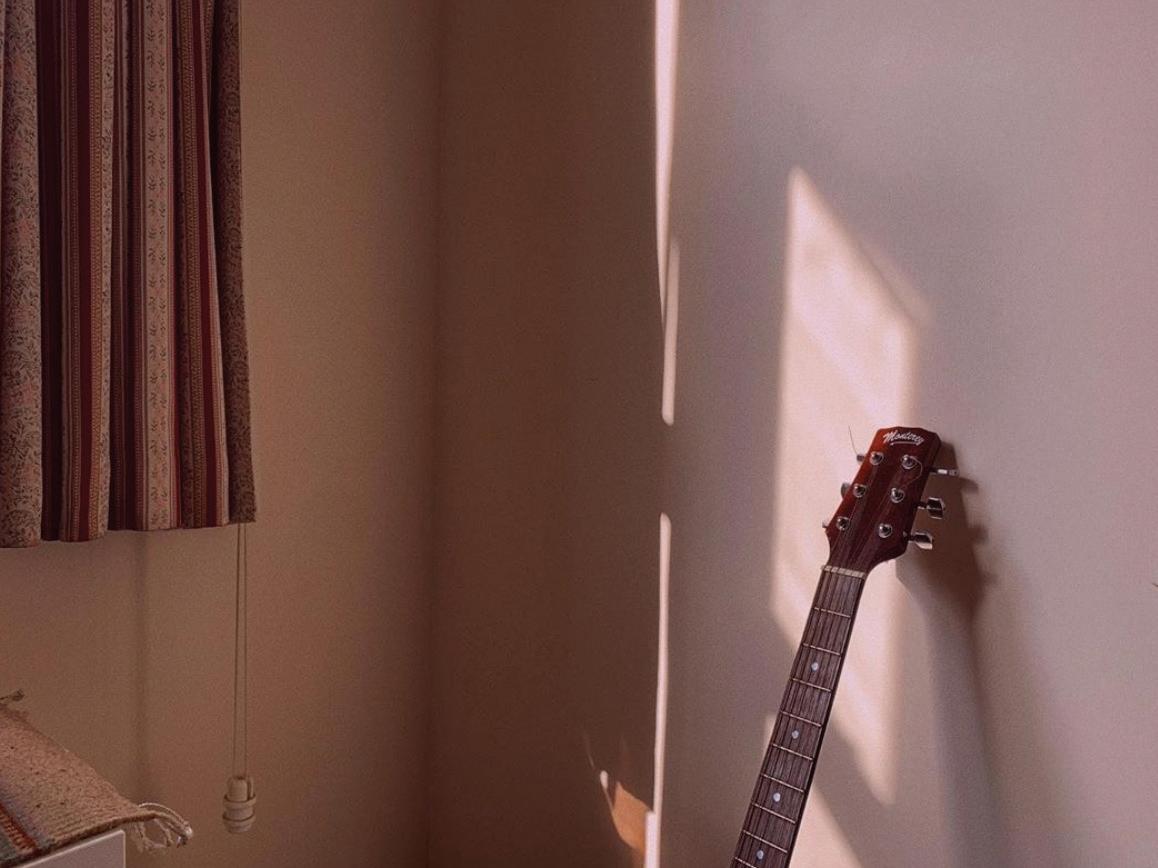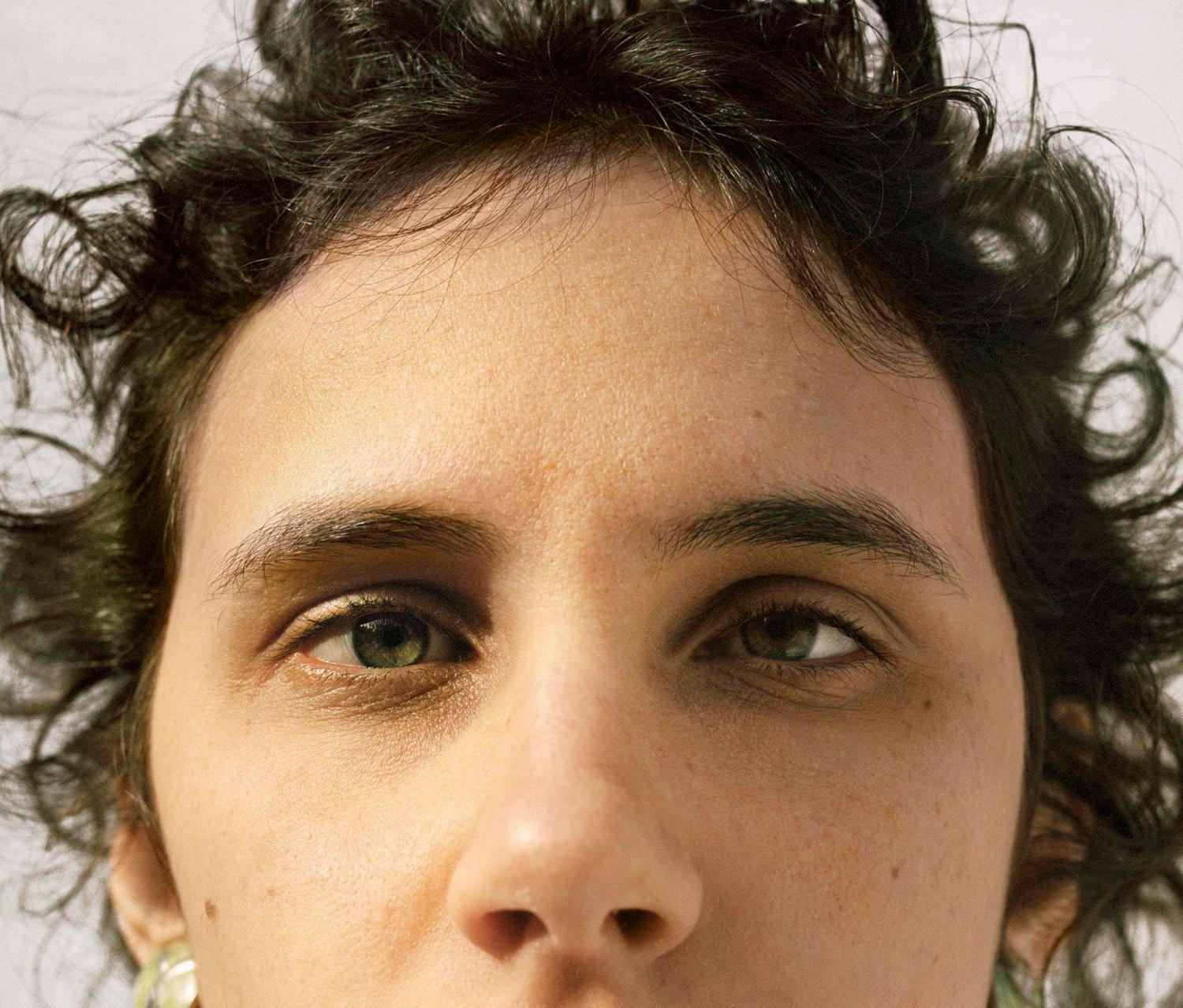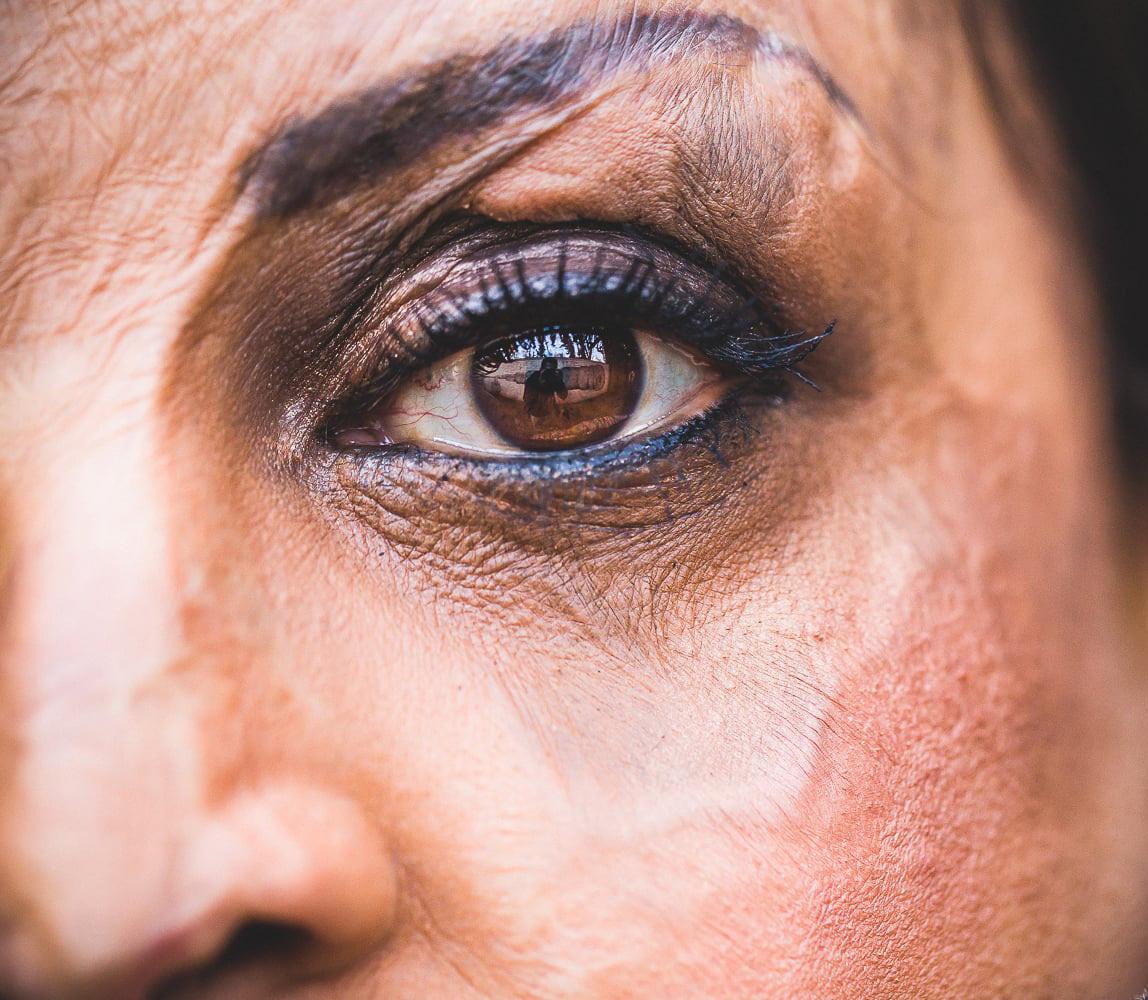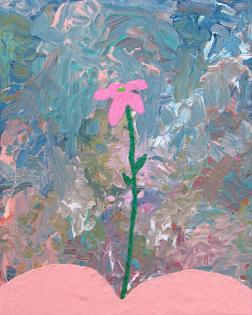
8 minute read
Femme
from GR310_Final_Peggy
by Peggy Lin
PHOTOGRAPHY BY ELLEN PEARSON
We spoke to four queer femmes about giving hon
Advertisement
our where historically, there has been shame
Femininity and the LGBTQ+ community have a complicated relationship. Much like the cis, straight world in which we live, the LGBTQ+ community (both subconsciously and explicitly) understands femininity as fundamentally less valuable than masculinity. Femininity is read as weakness, and, crucially, as a kind of superfi ciality: the feminine person cannot possibly be being themselves; they are putting on a performance for the straight, male gaze. One of the most signifi cant consequences of this way of seeing is that it essentially invisibleness feminine queer women. If any woman who looks ‘womanly’ is just playing dress up for a man, gay women who look feminine-gay women like me—simply don’t exist. Femme’—a lesbian sexual identity used by feminine bisexual and lesbian women to distinguish themselves from their butch/stud counterparts-developed in response to that invisibility. Rooted in lesbian working-class bar culture in the 1950s, ‘ femme became a way to actively assert your desire for women without having to compromise your femininity. You could wear stereotypically feminine things (like dresses or lipstick) without being inauthentic, or in authentically gay. The identity became a clear way to place your femininity as something that wasn’t in opposition to being a lesbian: it was in fact a key part of who you desired and who, in turn, desired you. Societal and historic shifts in our understanding of gender and sexuality have broadened the meaning of ‘femme’ no longer the reserve of lesbian and bisexual women;it’s now a descriptor used by a range of LGBTQ+ people including trans women, non-binary people and gay meaning some ways, that is a testament to progress: a kind of lessening of the shame around femininity in queer circle sin reality, that conception of femininity as not being ‘querkening’ persists If you don’t explicitly present in a way that divorces you from straight, patriarchal standards. Your sexuality is somehow invalid. I have friends who’ve been called out for not wanting to cut their hair short I’ve been told that you’re not a ‘real lesbian’ if you have long nails. This hetero-patriarchal hangover is built into LGBTQ+ spaces—you see it in the Grindr profi les that read‘ no fats, no femmes; in the lesbians in gay bars who are dismissed as tag hags: in the trans women accused of‘ aping femininity. To be femme, in some ways, is a radical act of reclamation It means standing in defi ance of routine devaluation spoke to four very different femmes about what that feels like—the breadth of their answers gives a window into the complexity, and the power, of being LGBTQ+and feminine today.
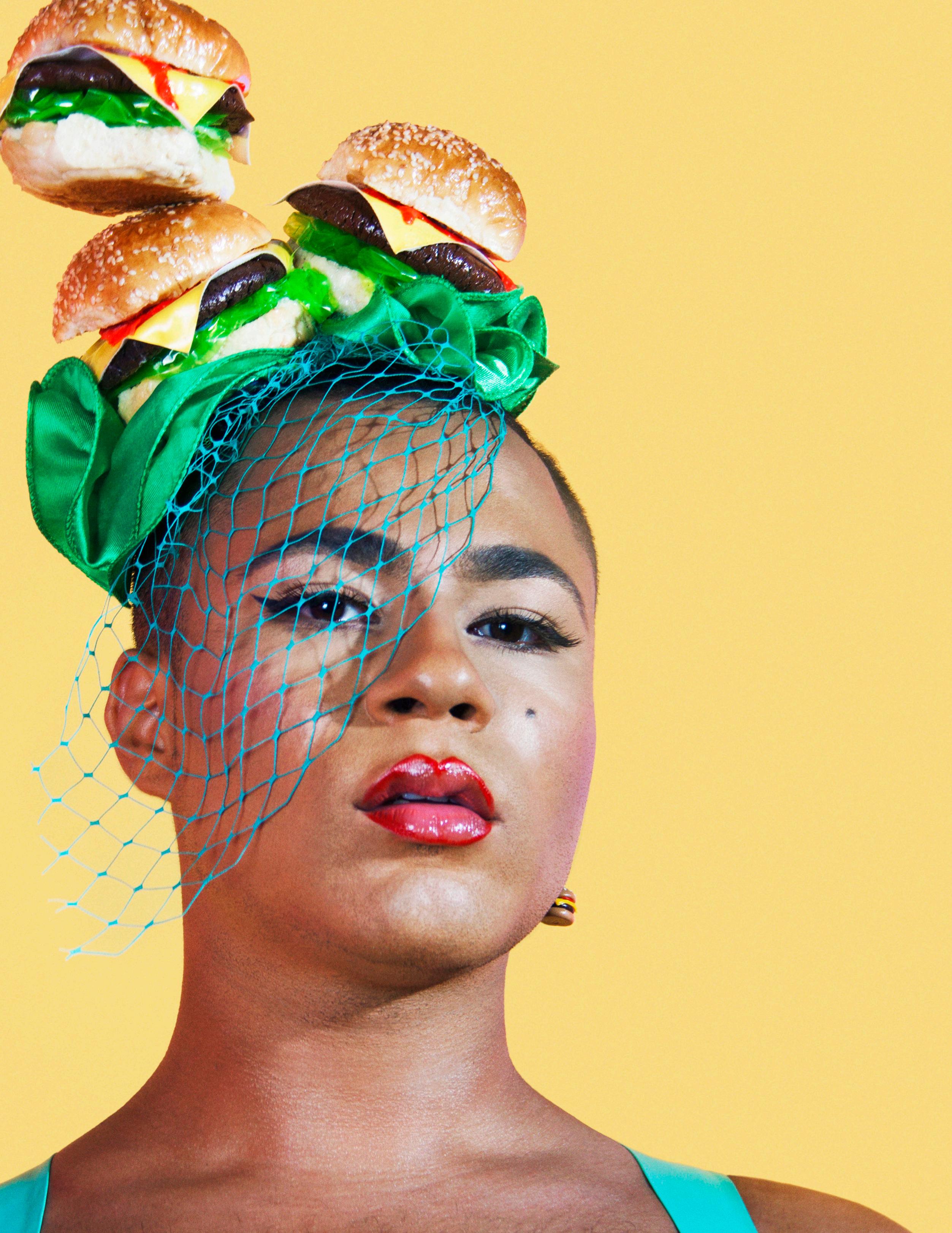
I love bodycon dresses. My mum used to let me wear them when I was younger, but when I went through puberty I stopped feeling comfortable in them because of how they showed the bulge of my dick. I really wanted to tuck away my genitalia. Now I love nothing more than wearing a really tight bodycon dress and not tucking’ s my favorite silhouette. Recently I’ve moved from just accepting bodies like my own to actively desiring them Now I’ll see a gender non-conform- ing person and find them beautiful and hot. That is down to a huge change in how I view my own and other people’s feminin- ity. I was always naturally a feminine person, but being coercively assigned maleate birth meant I was often punished for doing anything that was read or coded as feminine. I had this formula in my head that expressing that part of myself equaled pain or punishment. As I got older it meant danger too being trans is dangerous. Femme was a conscious and Intentional choice to reclaim what I’d been denied. It took a long time for me to decide that it’s more dangerous not to be my authen- tic self. When finding my fame less, race was essential: I had to look outside the white image of femininity to understand who I was gender non-conforming peo- ple with third genders, non-gender description and feminine people existed for hundreds and hundreds of years prior to colonization. When I realized that it made me think of being visibly femme as a de colonial act—it’s about grounding myself In the fact that I exist, and people like me have always existed.
Victoria Sin
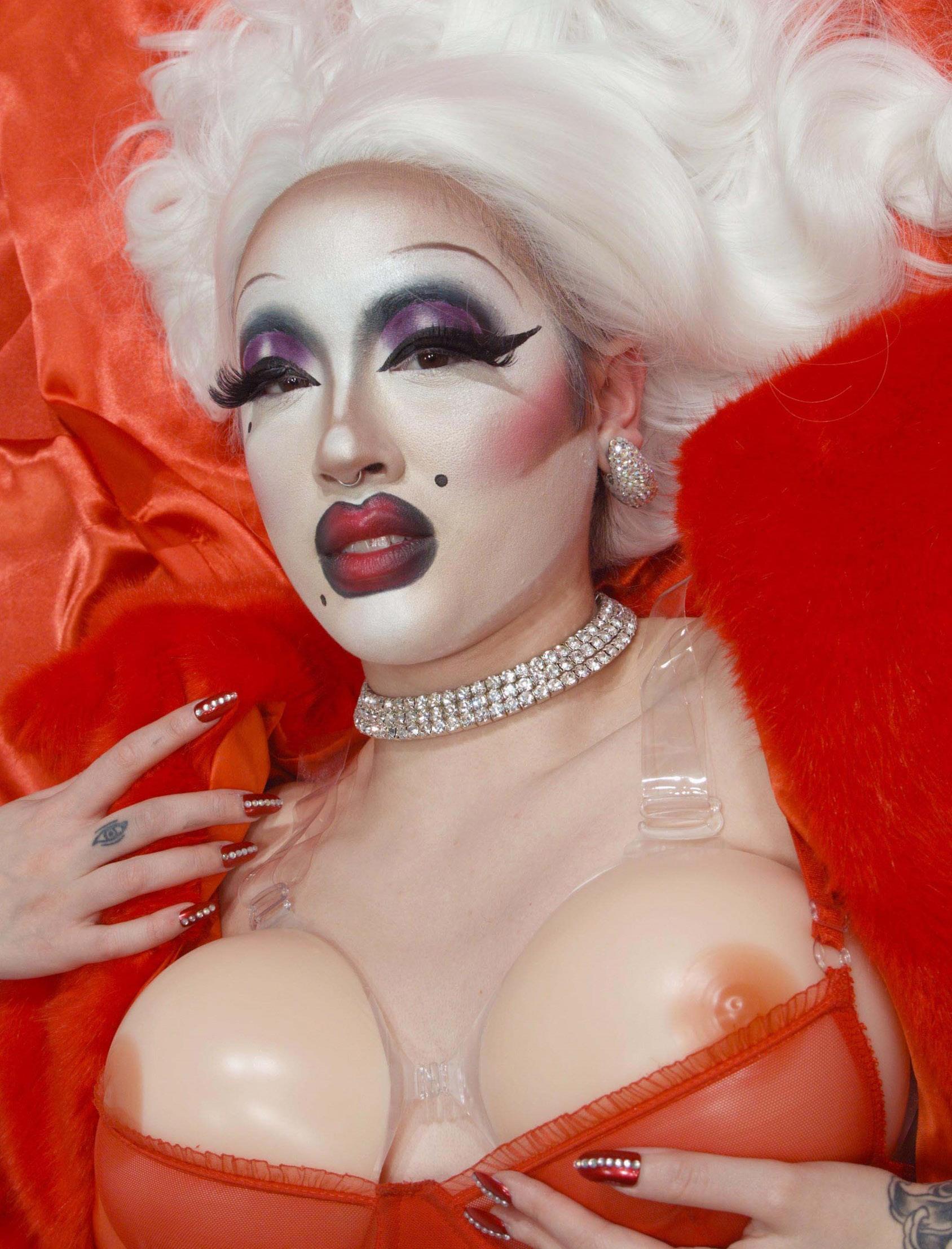
Victoria Sin
The femininity I perform onstage in drag is one that I would never be able to achieve in an everyday setting. Because I grew up in a mixed cultural household (my mum is white and my dad is Chinese), drag is a way for me to critique, and also live out, this glamorous white femininity that I was never able to attain.
The thing that has defined my drag character lately is my breasts. I remember hitting puberty and watching all the other girls starting to get curves and waiting for my turn, but it never came. When I put on my prosthetic breasts I know I have this incredible, bombastic figure changes the way I move. They make me feel sexy in every specific, feminine way, but at the same time very asexual. They feel like flesh but they’re not my flesh, they’re prosthetic to me. The impermanence is part of the appeal. I take my makeup off after each show with a face wipe and photograph it. Each one acts as a relic of the transformation, and an archive of the femininity performed that evening. It becomes a performative image in and of itself, kind of like a moment of returning to myself. Whether I’m in or out of drag, both personas are a kind of performance—but I think about that moment of transformation imprinted on the face wipe as the most authentic moment. It exists in limbo between two acts. When I’m not in drag I still ID as a femme, but I don’t call myself a woman. Something that is at the heart of my practice is that femininity is not essentially tied to womanhood-they can have nothing to do with each other. I am very attached to my identity as a femme, but I resent people if I’m a woman. I think that comes from a lifetime of people putting femininity on me in ways that I didn’t appreciate or want.
Sarah Moore
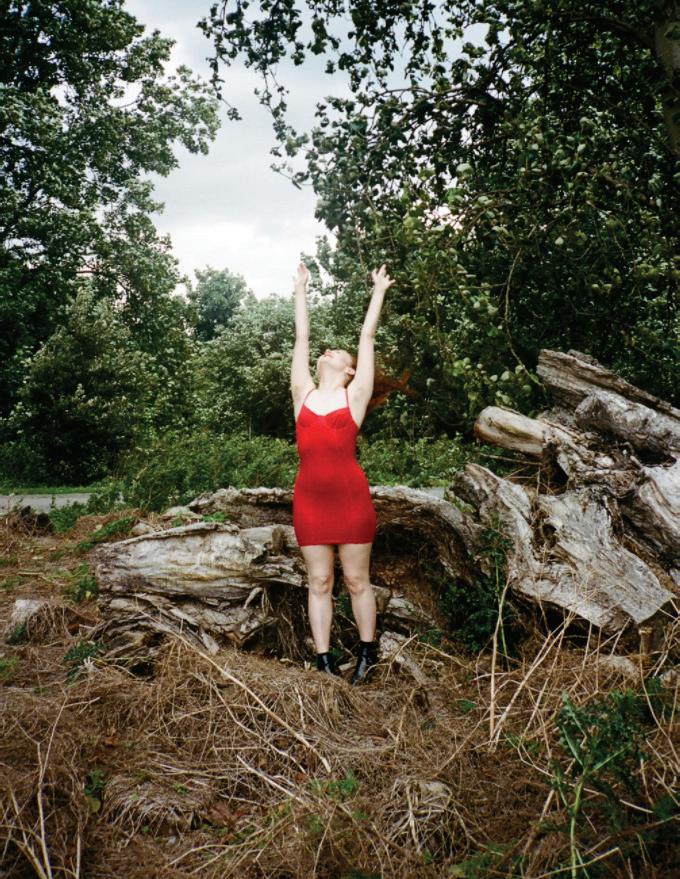
I’ve been obsessed with Jessica Rabbit since I was a kid I love the combination of red hair and lipstick Red lipstick, specifi cally this liquid-to-matte one that I wear every day, was such a big part of constructing my identity. I remember watching this fi lm noir called Double Indemnity—I loved the association made between women and lipstick Women applying red lipstick in fi lm means that they’re ready for sex, in an incredibly empowered way. I reject that notion of I’m a femme lesbian because I am not a butch lesbian. It’s more like, ‘ I will wear lipstick and it’s not for you, and it’s going to piss you off because I’m queer It’s about using feminine tools in a deliberate and antagonistic way to make a point. Finding myself as femme gave me the strength I needed to walk into the world as a queer person. My identity as femme is defi ance and pride in the face of patriarchy and adversity. I used to be embarrassed that I felt like I didn’t fi t anywhere;I can assimilate into the straight community easily and I’m not comfortable with that I don’t like when people think of ‘straight-passing’ as a compliment. When I took the time to learn what it would mean for me to be queer-to embody queer rather than present queer-it gave me the confi dence to embrace vulnerability Now I understand my femininity as something soft but hard-core, strong and beautiful.
I went through a stage where I thought I was bisexual during that time I was very feminine while in relationships with cis guys. When I came out again as a lesbian I was tomboyish for a while because I felt in a strange way that I had to be. Once I had discovered femme, I realized that he way I wanted to be naturally is what other people. specifically, butch women, desire. It was a revelation I can be as pink as I fucking want-someone loves that part of me. My femininity is for me, but it’s also about how that plays out in my desire for butch women or trans guys. No cis men fantasy about butch / femme relation- ships, because to them it’s a threat. If you’re in that kind of relationship, you essentially replace any kind of male gaze by fulfilling all the gender and relationship roles yourselves. That’s why the patriar- chy won’t allow femme lesbians to be visible—because we exist in antithesis to the male gaze. But if nobody sees me when I’m walking down the road, then they don’t see my story. I do worry that we are losing our history. I was recommended Joan Nestle’s work by an older femme friend and reading her book, The Persistent Desire: A Butch / Femme Reader (1992), was almost like discovering the bible. That books out of print now, like a lot of lesbian writing, which means we don’t pass down femmes origins in lesbian culture. Speak to most people and they think ‘femme’ is just a term used by gay men-the whole conversation around his identity is being led by the gay male experience actually had to rewrite the ‘femme’ Wikipedia page recently, because someone took it upon themselves to define ‘femme’ as an identity that only applies to transfemi- nine people. They’d completely erased lesbians from the history of the term.
Interviews by Sadhbh O’Sullivan
Our subtitle is inspired by a Maggie Nelsons citation of an essay on butches and femmes in The Argonauts (2016 ) to be femme is to give honor where there has been shame.
